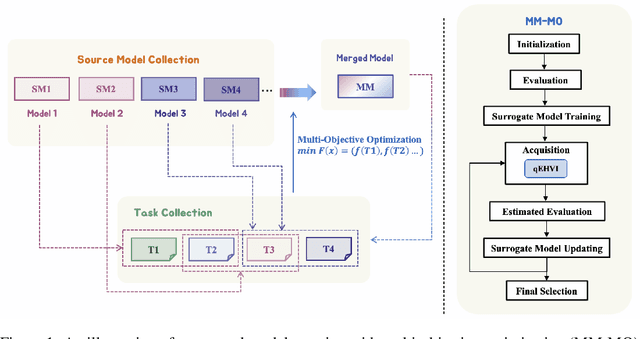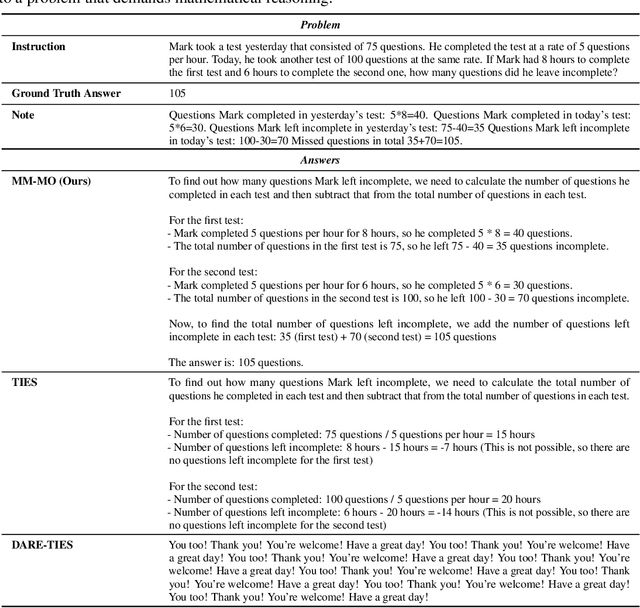It's Morphing Time: Unleashing the Potential of Multiple LLMs via Multi-objective Optimization
Paper and Code
Jun 29, 2024



In this paper, we introduce a novel approach for large language model merging via black-box multi-objective optimization algorithms. The goal of model merging is to combine multiple models, each excelling in different tasks, into a single model that outperforms any of the individual source models. However, model merging faces two significant challenges: First, existing methods rely heavily on human intuition and customized strategies. Second, parameter conflicts often arise during merging, and while methods like DARE [1] can alleviate this issue, they tend to stochastically drop parameters, risking the loss of important delta parameters. To address these challenges, we propose the MM-MO method, which automates the search for optimal merging configurations using multi-objective optimization algorithms, eliminating the need for human intuition. During the configuration searching process, we use estimated performance across multiple diverse tasks as optimization objectives in order to alleviate the parameter conflicting between different source models without losing crucial delta parameters. We conducted comparative experiments with other mainstream model merging methods, demonstrating that our method consistently outperforms them. Moreover, our experiments reveal that even task types not explicitly targeted as optimization objectives show performance improvements, indicating that our method enhances the overall potential of the model rather than merely overfitting to specific task types. This approach provides a significant advancement in model merging techniques, offering a robust and plug-and-play solution for integrating diverse models into a unified, high-performing model.
 Add to Chrome
Add to Chrome Add to Firefox
Add to Firefox Add to Edge
Add to Edge